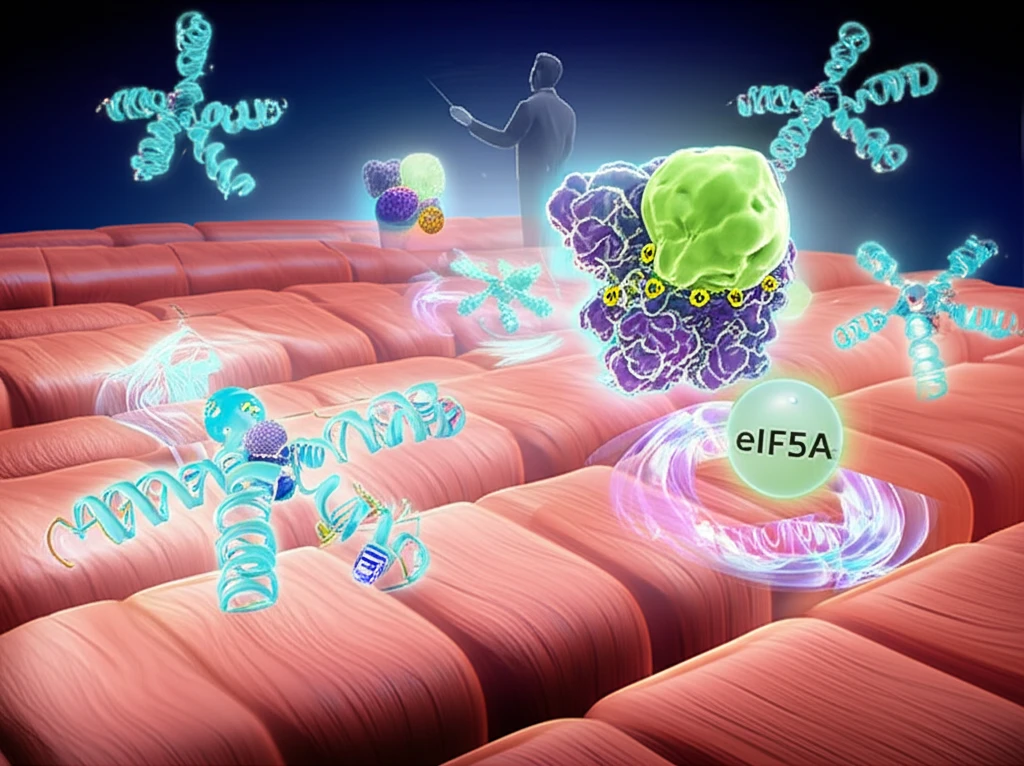
Insulin's Surprising Role: How It Boosts Protein Production for Muscle Health
"Uncover the link between insulin, protein synthesis, and a key factor called eIF5A for better muscle growth and overall health."
Insulin, a hormone primarily known for its role in regulating blood sugar, plays a multifaceted role in the body. Beyond carbohydrates and fats, insulin is crucial for protein metabolism. It actively encourages amino acid uptake and sparks protein synthesis in cells, essential for building and repairing tissues.
This process relies on a complex network of signaling pathways. Key players include Akt/PKB, mTOR, S6Ks, and 4E-BP1, along with various translation factors. These factors act as messengers, relaying insulin's signal to initiate and control protein production. Yet, one factor, eukaryotic translation initiation factor 5A (eIF5A), has remained largely unexamined in this context.
eIF5A is unique because it contains hypusine, an unusual amino acid residue critical for its function. It's involved in cell growth and specialization, hinting at its importance in muscle regeneration. The central question is: Does insulin directly influence eIF5A expression and hypusination, and how does this impact muscle health?
Insulin's Impact on eIF5A: A Deep Dive into Protein Synthesis

To investigate the connection between insulin and eIF5A, researchers at the University of Campinas and São Paulo State University conducted a study on L6 myoblast cells, a model for muscle development. They manipulated insulin levels and observed the resulting changes in eIF5A expression and its hypusination. The results revealed a fascinating interplay, showing that insulin significantly affects eIF5A activity.
- Increased eIF5A Transcripts: Insulin boosts the production of eIF5A transcripts, the blueprints for creating the eIF5A protein.
- Maintained Hypusination: Insulin helps maintain the hypusinated form of eIF5A, which is crucial for its activity in protein synthesis.
- Independent Action: These effects occur even without other serum components, showing insulin's direct role.
- Protein Synthesis: eIF5A, modulated by insulin, contributes to the general protein production in cells.
Implications and Future Directions
This study sheds new light on insulin's role in protein synthesis by highlighting its interaction with eIF5A. Understanding this connection could pave the way for new therapeutic strategies targeting muscle regeneration, metabolic disorders, and other conditions where protein synthesis plays a crucial role. Further research is needed to fully elucidate the mechanisms involved and explore the potential clinical applications of these findings.
